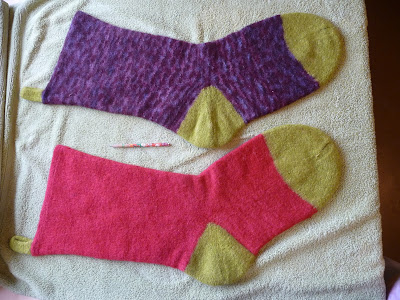In my kid years, my dad lived with a woman who had a daughter my age. We became default sisters, though I was not as nice to her as she was to me. I was envious of her only-child status, all the extra Christmas presents she received from her relatives, and how her mom was in her life (ah the enduring mother issue).
When we grew up, or at least got old enough for college, we studied together. I was a math major and she physics, so we spent many late nights trying to decipher complex differential equations and quantum mechanics. On nights we studied into the witching hours, at some point she would stop scribbling equations, look up and utter the one word I had been waiting all night to hear: "Cookies?"
I'd nod and she'd dash off to the kitchen, me following behind like a dutiful elf. Without recipe, she'd scan the cupboards, pull down whatever caught her eye, toss them together in a big bowl. My job was to stand by, fetching eggs, holding the sifter, only tasks that had no particular skill requirements. She'd drop small mounds of her concoction onto a cookie sheet, tuck them in the oven and ten minutes later we were back at the books nibbling her cookies.
Back then baking cookies from scratch seemed magical.
One semester, fishing around for a fun elective, my cookie-maker suggested physics: "It'll be fun, you'll love it."
She left out the caveat that love for physics is a slow-burn kind of love. It creeps up on you, like a sloth out for a stroll. One minute your stuck in a physics class surround by engineer majors who nod and scribble down everything the professor, just a speck in front of the giant lecture hall, pratttles on about on the subject of friction, coiled springs, how to determine when a ball will land after shooting it in the air, while you scream with your inside-your-head-voice: "who the *&%! gives a flying *&^$!!?." And then twenty years later you find yourself fondly explaining to your tiny children: "It's physics" -- your pat reply to just about every "how come" question. Boom, you love physics, just like that.
And in that twenty years, I came to understand the magic of making an excellent cookie from scratch. It's physics.
Everything from the careful bonding of butter and sugar or the thermal conductivity of a cookie sheet. It's physics and it tastes awesome.
 |
| my peanut butter chocolate chip cookies |


































